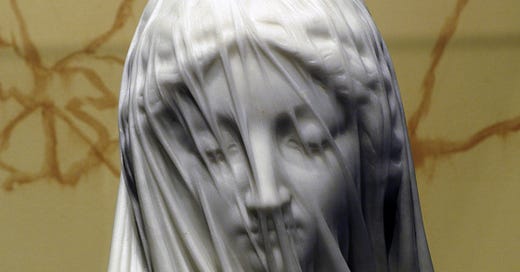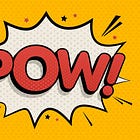What is writing?
If learning is not about getting knowledge from others, but about creating simulations with your imagination, then all idea creation processes must be similar
You should read Deutsch to understand how our minds are similar to a universal computer simulator, that is, able to simulate anything in reality and how it links to the theory of computation.
It’s utterly fascinating although very hardcore and I’m not sure I’d be able to explain it in my own words (which would mean I probably don’t still understand it 100%) but I’ll definitely try at some point.
But one of my conclusions that I am already able to explain and I’m more sure of, is that all creation processes are very similar.
I wanted to explain a few of them so that I can finally let you know what writing is for me:
Works of art
I don’t think an artist like an sculptor jumps directly onto his work (except perhaps some very very modern forms of art for reasons I’ll explain below).
An artist needs to visualize his creation in his imagination first. But since imagination is a simulation a model or a simplified representation of reality (what an idea is), you can’t be entirely sure of what it looks like, whether it makes sense in reality.
Finding errors in your imagination alone is really hard. You have to get your hands dirty on a raw, unworked block of stone to try to find errors in your idea. At first a raw unworked block of stone is almost packed with errors.
As you start working on it, you keep finding errors, with which you start learning more about how a human body actually is, how a piece of marble can be incredibly tweaked to look like a piece of clothe.
But as with every learning process, it’s an iterative one. It’s constant trial and error, sometimes meaning that you have to restart all over again.
As you advance in your work the number of errors diminishes with some ups and downs until in the end, the final work is hard to vary because it will get almost as close to what it should look like in reality as it gets.
In another post I’ll talk about another similarity that fascinates me, which is the one between beauty and truth. But also trust.
Since the first two can only be achieved by iteration, there is an unforgeable costliness in it. Consequently, I believe there is such a thing as objective beauty in the same way there is such a thing as objective truth.
And this iteration, has to do as well with Bitcoin mining, sending honest signals and consequently with trust, as I briefly explained here:
Businesses
If you have ever had a business idea you’ll see a similarity with the former, it takes a near obsession to find errors in a business idea because there are so many unknowns.
You’ll only find those errors by experimenting that business idea with reality (aka market). Starting a business is therefore a great learning process too. You’ll learn with great granularity so many concepts and aspects of reality about a very particular niche and that’s super valuable.
You’ll have to iterate a lot and if you get stuck in front of a wall, chances are you’ll have to pivot once reality stubbornly tells you you are not following the right path and should consequently find another.
Interestingly there is also a relationship between business and honest signals. As someone who has worked in sales for a while, I always need to make sure my potential customers send me honest signals, signals that are costly.
If someone is actually interested in buying from me and not eager to waste my time, it will have to send me an honest signal.
I always ask prospective customers to send me some doc, something they will have to put some effort into, or sometimes I demand a call at a time that I know will not be particularly friendly with their schedule. When they accept without any issues I know there is an opportunity. In my CRM I move such opportunities to a later stage that I call the First PoW stage.
Science
Science follows an identical process that starts with a conjecture of how something works in reality.
That conjecture then gets criticized by yourself and by your peers. Then your conjecture varies a lot at first but as it gets better, it varies less.
A good heuristic to identify a good explanation is that it is hard to vary. But a good work of art is also hard to vary because it will be hard to find something to be criticized and improved about it.
A good explanation is an honest signal because you don’t come up with good explanations spontaneously. It requires exhausting criticism and error correction sessions.
For example “God did it” is a bad explanation first, because it is easy to criticize and to find logical errors in it but also because it is an explanation virtually for anything.
And then when you find a decently good explanation, you need to experiment it with reality to make sure you can choose between rival good theories, between rival good explanations that which passes a reality test.
Genes
Evolution is also a learning process embedded in nature. The genes you are born with are kind of a conjecture, a consequence of the knowledge inherited from your father’s genetic code and that from your mother’s. Do some rather (perhaps) random combinations of those genetic codes and add a few mutations to the mix and voilà, there you are.
Then you’ll become an experiment with reality if the combination of your genetic knowledge and that of your explanatory knowledge combined with that from your loved ones, lets you live a nice life.
Explanatory knowledge is, as I explained in previous posts, the essential piece of a human that lets us by pass our limited genetic knowledge compared to other animals in nature.
Writing
And finally writing which is what we’re all doing in substack. I bet your writing process starts with an idea as well. Ideas happen by combining knowledge. You can almost feel neurons connecting with each other when you get a good idea and all of a sudden you can visualize, as in the aforementioned computer simulation, an explanation of how a particular part of reality works.
And then without any idea of how the final result will look like, you start what for an outsider could look like a very random creation process, very easy to vary at first but harder and harder to vary as you get closer to the finish line.
Beauty everywhere
And interestingly there is beauty in a good scientific explanation, in the same way there is beauty in a work of art (except frequently modern art), in humans, in the design of the value proposition and competitive advantage of a business and frequently, in a piece of writing too.






